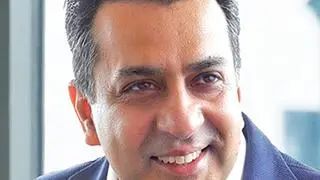As part of a $70-million World Bank funded project, Globsyn Group’s Founder and Executive Chairman Bikram Dasgupta has officially taken on the role of International Expert Advisor to the Government of Bangladesh for IT and ITeS. Dasgupta is best known for his concept of the ‘Software Finishing School’ and the Globsyn Business School in Kolkata. He speaks to the BusinessLine about his new role and the direction that Globsyn Group will take in the coming years.
What are some of the challenges you will look at addressing as part of your new role?
Bangladesh traditionally has very few engineering colleges. The readymade garments industry there is huge and has led to some parents having enough money to send their children abroad for higher studies. Look at what happened in India when we started catering for students who were keen on computer engineering. I definitely want to look at increasing the number of engineering institutes in Bangladesh and attracting foreign institutes to invest here.
There are so many South-East Asian economies in the IT services space now. Do you see India and Bangladesh growing side by side?
The Bangladesh IT growth strategy is distinctly different from India’s. India has grown to a size and shape that is creating space for others now. Philippines is a good example of an entire ITeS industry in the last seven to ten years built in the space created by us. Bangladesh, with initiatives like “From Freelance to Entrepreneurs”, is encouraging individual talent, vertical expertise, like in graphics and Web areas.
India is concentrated on corporate and institution building. This is likely to continue for several years. In fact, Bangladesh can be a sub-contracting destination for Indian software companies beyond a particular size. We call them “near shore”, as Mexico is to the US.
And are the developments made so far in Bangladesh encouraging?
On the supply side, the World Bank project has initiated training for 24,000 young people in the ITeS domain and a further 10,000 youth in IT Services. On the demand side, talks are on with large multinationals to set up Offshore Development Centres in Bangladesh. Samsung has an R&D centre here that employs around 650 people.
It wants to grow to 2000 people, but talent has to be trained and we could start with 4th year students. Accenture has taken ownership of the Grameenphone business and plans to enter the IT and ITeS sectors.
Are recent developments part of a learning curve or the beginning of a longer phase of discomfort for Indian IT behemoths?
In a hugely competency-based business like IT, you need to survive at every level through competency. And you have to be relevant all the time. Entrepreneurial talent made the Indian IT industry grow.
We never knew we would grow so much. And we’ve absorbed this huge growth. Most companies have quickly learnt along the way.
There will be gaps, wrong decisions too along the way. But the growth engine is sustainable, based on business models that are revised every 16-18 months. This is a trillion-dollar global industry now.
What direction do you see the Globsyn Group taking in India as you get busy with initiatives in Bangladesh?
My sons have taken over the operations since they returned from the US. We’re aiming at ₹100 crore revenue by 2016 for just our skills business. We’ve got a strong distributor-franchisee model that has been working very well for us with nearly 400 centres across the country. In education, we will only have the business school.
Globsyn is value-sensitive and we don’t want to do multiple things. There’s our IT business, in which analytics and cloud are becoming important for us.
What are your thoughts on innovation, leadership and management, as someone at the frontline of Globsyn and as an industry observer? What tends to stand economies and their enterprises in good stead in the long term?
As human life, human behaviour and society’s adoption factors change, we must be there to lead by our understanding of the same.
Entrepreneurs must keep filling the gaps society creates as it moves ahead by using relevant technology. If you keep filling the gaps, you will always lead.








Comments
Comments have to be in English, and in full sentences. They cannot be abusive or personal. Please abide by our community guidelines for posting your comments.
We have migrated to a new commenting platform. If you are already a registered user of TheHindu Businessline and logged in, you may continue to engage with our articles. If you do not have an account please register and login to post comments. Users can access their older comments by logging into their accounts on Vuukle.